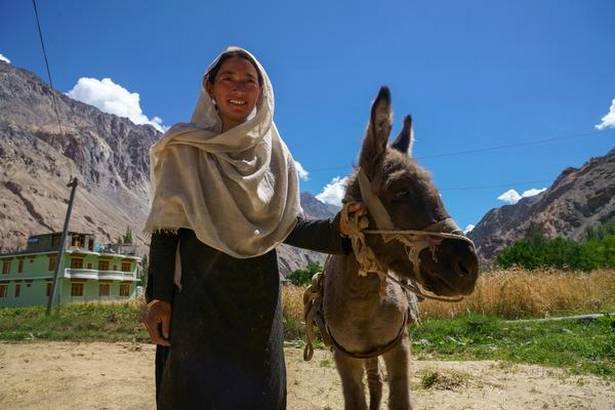Turtuk (Leh District ), JAMMU & KASHMIR :
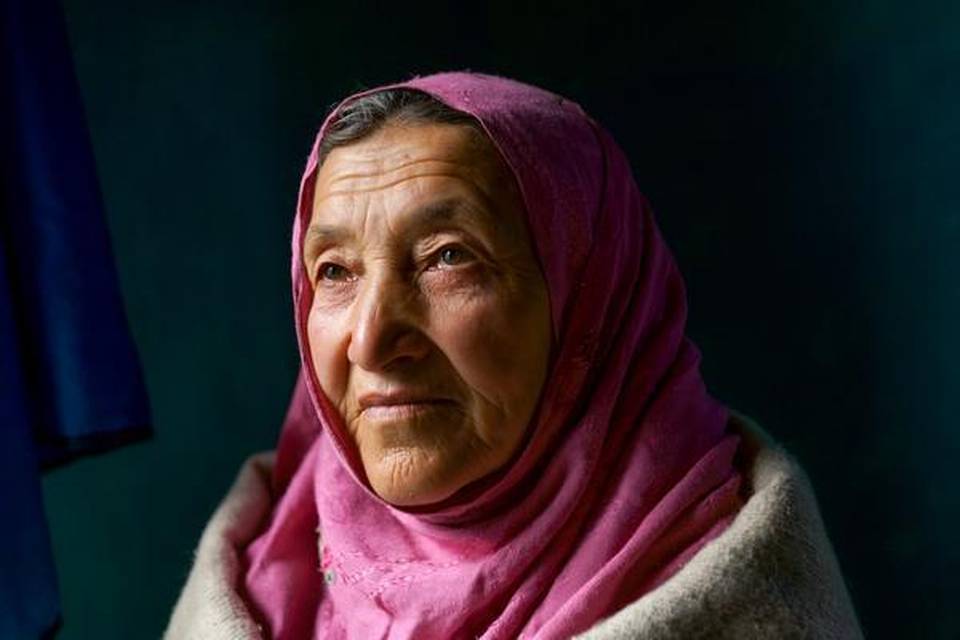
She was the first girl of this border village to finish school when other girls did not even get schooling; and she became the first woman to get a government job here
Rahima Begum was a young bride and new mother when she awoke one morning in December 1971 to find her dreams shattered and her new family divided. India had captured her village of Turtuk and three neighbouring villages of Chalunka, Thang and Tyakshi on the India-Pakistan border. Overnight, the LoC had shifted. For India it meant a tactical victory, and new vantage points for the forces. For the villagers, it meant separation, heartbreak and hardship.
Turtuk, with its lush fields and blue skies, is an oasis amid the stark, stony peaks of the Pamir and Hindukush mountains. The sprawling flowering buckwheat fields are dotted with the orange-canopied and entangled trunks of apricot trees. Water from the glacier gurgles along Turtuk’s cobbled paths, and in summer, laughter echoes across the fields as children splash about in a natural pool in the village centre.
This is where Rahima grew up in the 1960s. She was a bright, free-spirited child, full of dreams. Her parents had ambitions for their young daughter. Her great-grandfather was a famous Balti poet. Rahima attended the local school and, at 14, became the first girl to graduate from it.
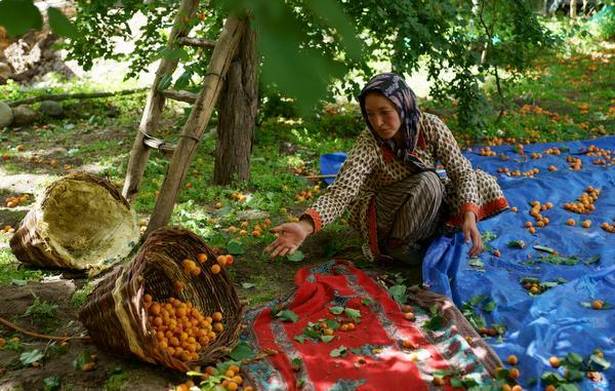
She recalls how in summer the children jumped into the pond to bathe. They did so with their school uniforms on, so they got washed too. They would then stand under the sun, arms outstretched, and dry out.
As was the custom, as soon as Rahima finished Class VI, her family found her a husband. He happened to be her cousin, Sher Ali and was known as the most handsome man in the area, and in fact in all of Pakistan. Rahima considered herself fortunate. Ali worked in the Pakistan army and marriage promised travel and a steady income.
Daily chores
As a married woman, Rahima took on household and farm work. She woke early, prayed, and made breakfast of kisir (buckwheat pancake) and grangthur (curd with local herbs). She would then set out to work in the fields or orchards. On some days she returned by afternoon, on others she toiled till sunset. At home, there were donkeys and chickens to feed and other domestic chores. Then, in November 1971, Rahima’s daughter Aisha Sudiqa was born.
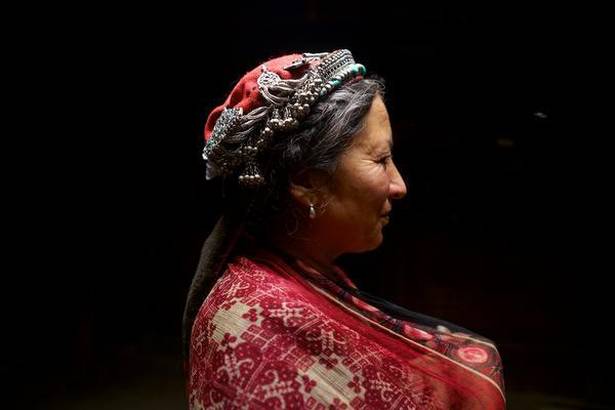
In December, when India captured the area, Chalunka’s residents gathered all the possessions they could and fled across the new border into Pakistan-occupied Kashmir. The three other villages decided to stay in India.
For some time, Rahima’s life remained unchanged; she was immersed in her baby daughter. But Sher Ali was not permitted to cross the border and come to India and Turtuk. Aisha was growing up; she began to accompany her mother to the apricot orchards and splash in the pond. But Rahima missed Sher Ali very much. She had not foreseen that she would be raising her daughter on her own. She waited hopefully for news of his return. Three years passed.
Then, in 1974, Rahima finally received a letter. It was from Sher Ali. Her hands trembled as she opened it. He wrote to say that he missed her very much, he asked about Aisha. He said he hoped to be reunited with them soon, and asked her to take care of herself and their daughter.
After reading the letter, Rahima became even more determined to live with him, even if it meant crossing the border into Pakistan. The very same day she packed some clothes and documents and set out with Aisha on the long journey to the Wagah border. Miles of barren, unforgiving terrain later, she gazed out of the tempo window to find men in khaki and green, and army trucks trundling by every few minutes. The vehicle slammed brakes, and she was ordered to get down with everyone else. She walked to the border control. She was afraid, but knew she had to be strong.
The officials inspected her documents, and checked records from a big book to make sure she had no history of attempted border-crossing. An officer then walked towards her, and said she could not cross. She pleaded with him, but it was of no use. Heartbroken, Rahima and Aisha returned to Turtuk. She wondered if she would ever see Sher Ali again.
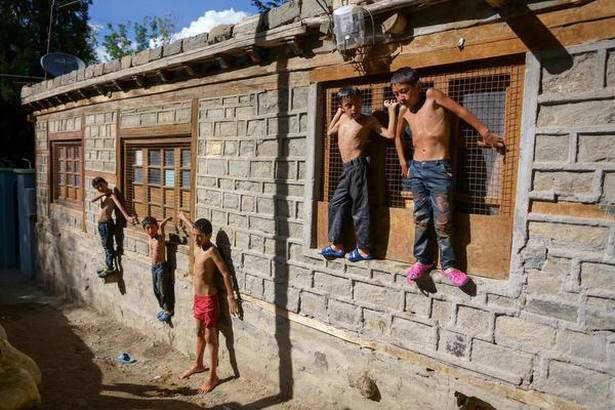
Bolt from beyond
Two more years passed. Then, when Aisha was six, in 1976, Rahima received a letter. It said “As-salaam-alaikum. I hope you and Aisha are well. I am upset to bring to you the news that I don’t think we have hope of ever meeting again. I tried many times to cross the border and was rejected. I think it is time to say goodbye. I need to marry another woman. Khuda Hāfiz.” For Rahima, life went on.
Six years later, Sher Ali wrote again. It had now been 12 years since their village had been brought into India. This time, the letter asked for a divorce. Rahima’s eyes welled up with tears, her hands shook as she read the letter. “Take care of Aisha,” the letter said. “I wish you luck in life. Khuda Hāfiz.”
The divorce came through. In October 1983, Rahima’s and Sher Ali’s parents persuaded her to marry Sher Ali’s younger brother, Abdul Kareem. Aisha was delighted to have a father, and the next year, the couple had a baby girl they named Farida Khanum. Ten years went by. Rahima, now a mother of six, was determined to make something of her life. She decided she wanted to improve the lives of Turtuk’s residents. With her education, she was able to take up a government post in Turtuk as an Urdu teacher.
Rahima sent all her children, boys and girls, to school, and encouraged others to educate their children too. She led by example: she was after all the first girl of her village to finish school when other girls did not even get schooling, and she also became the first village woman to get a government job.
School topper
Rahima’s daughter Aisha also excelled in school, and became the first girl to leave Turtuk village and enrol in high school in Hunder. She then went to Srinagar’s Maulana Azad National Urdu University for a B.Sc. degree, and then an MBBS as well.
Nobody from Turtuk had ever gone outside Ladakh to study before. Aisha was excited and proud. After her training, she returned to Turtuk, the first woman doctor in the village.
Aisha, like her mother before her, became a role model for Turtuk’s girls. She visited her neighbours, friends and relatives, and even the schools in Turtuk and neighbouring villages. She spoke to the young girls there, ignited in them dreams and hopes, spoke about careers, income, knowledge and education of women. Today, everyone in Turtuk wants their girls to be like Aisha, to go to school, to work, discover the world outside. It has been a major leap.
One evening during Ramzan, in 1995, Aisha returned home to break her fast, but feeling fatigued and disoriented, she went to bed, and passed away in the early hours of the morning. She had been suffering from anaemia and the strain of travel and fasting had proved too much.
Rahima mourned her first-born, and the village the loss of their strong, independent and educated daughter.
But Turtuk vowed to keep her memory alive by educating girls and improving their lives. Thanks to the mother and daughter, life in Turtuk has changed a lot. Now, all girls attend school. Many continue their education in Kashmir or Delhi in big universities.
To the average tourist, Turtuk may look like it’s stuck in a time-warp. But its residents know that their lives have changed dramatically. And that a big part of this revolution owes to two of Turtuk’s daughters, Rahima and Aisha.
The Mumbai-based writer is a Sony Artisan, photojournalist and cinematographer.
source: http://www.thehindu.com / The Hindu / Home> Society / by Kartiki Gonsalves / November 03rd, 2018
